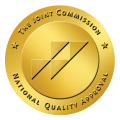Therapy is a key component of the addiction recovery process. During therapy sessions, individuals can work to combat the emotional, social, and psychological issues connected to their substance abuse. Therapy, which can take place individually or in a group setting, can also help individuals manage stress, overcome triggers, heal from trauma, regulate difficult emotions, restore relationships, prevent relapse, and maintain sobriety. Even though both types of counseling can help individuals recover from addiction, they differ in many ways.
In individual therapy, individuals meet with a licensed counselor for one-on-one sessions. Group therapy, on the other hand, involves several people in the same room working together to address challenges as a group. But those aren’t the only differences between individual and group therapy. Here’s what you need to know about therapy and addiction recovery, what each type of therapy entails, and how the two types of therapy differ from each other.
How Therapy Benefits Addiction Recovery
Therapy is an essential aspect of addiction recovery. In addition to providing individuals with a safe, non-judgmental outlet that can help an individual start healing from trauma or painful experiences, therapy can help individuals understand the reasons behind their addiction. Without addressing these underlying issues, individuals can easily become overwhelmed by unresolved pain from their past and relapse.
Therapy can also help recovering individuals change their lifestyle habits. In addition to eliminating drugs and alcohol from their body, individuals recovering from addiction need to identify, address, and change the day-to-day habits they’ve created that have contributed to their substance abuse. This can include drinking and using drugs to relieve everyday stress, psychological distress, and emotional pain. This can also include using addictive substances as a way to escape reality, cure insomnia, ease painful symptoms, medicate mental health disorders, or deal with boredom.
Therapy also has many other benefits. For example, therapy can help people:
- Boost their confidence and self-esteem. Addiction can make individuals feel powerless, hopeless, and helpless. Feeling this way can negatively impact an individual’s self-confidence. Therapy can help individuals identify and reframe negative self-talk and unhelpful thoughts, helping individuals see themselves through a more positive lens.
- Identify and overcome triggers. Generally, addiction is often a result of emotional, social, psychological, and physical triggers. Therapy can help individuals identify the triggers in their lives that can lead to relapse and learn how to avoid them in the future.
- Heal from trauma or painful experiences. Many individuals who abuse drugs or alcohol do so to deal with, cover-up, or escape from some type of trauma or emotional pain. Therapy can help individuals process this pain in a way that doesn’t lead to substance abuse.
- Find their voice. As individuals in therapy sessions work through their personal, emotional, social, and substance use challenges, they start to find their own individual voice. With this voice, individuals can start to take charge of their own recovery journey. This often looks like individuals coming up with their own recovery goals, deciding what they want to do with their life after recovery, and developing their own plan for maintaining sobriety.
- Regulate their emotions in a healthy way. Many recovering addicts used drugs and alcohol as a form of self-medication. Instead of dealing with emotions in a healthy way, they developed the habit of turning to drugs and alcohol when faced with uncomfortable, distressing, and challenging situations. Therapy teaches individuals how to face these types of emotions with healthy coping skills instead of drugs and alcohol.
- Teach individuals how to deal with stress and other distressing situations. Stress can encourage triggers and cravings which can, in turn, lead to relapse. Therapy benefits the recovery process by teaching individuals healthier ways of dealing with stress. These coping skills can range from deep breathing to progressive muscle relaxation to reframing unhelpful thoughts, but they all help individuals learn how to handle stress without using drugs or alcohol.
- Deal with mental health disorders. Research shows that many people struggling with addiction also live with mental health disorders. These disorders can range from mild anxiety to severe depression to bipolar disorder, post-traumatic stress disorder, and schizophrenia. The symptoms, regardless of the disorder, are often challenging to live with and debilitating. As a result, many people use drugs and alcohol to cope. Therapy can help individuals deal with these disorders without relying on drugs and alcohol.
The type of therapy an individual receives can be different for everyone, but many individuals begin with individual therapy and start to participate in group therapy as their recovery progresses.
What Is Individual Therapy?
Individual therapy is a form of therapy in which the client is treated on a one-on-one basis with a therapist. A therapist will usually work with a client to address the root causes of the problem, such as how they got into trouble, what led them to become addicted, and how they can get out of it. Since individual therapy sessions are one-on-one, this type of therapy can help individuals work through personal and private challenges. These challenges can include trauma, mental health disorders, and family challenges. One of the best advantages of individual therapy is that the sessions focus on a single person.
What Is Group Therapy?
Unlike individual therapy, group therapy takes place in a group setting that allows several individuals to share their experiences at the same time. Groups can often provide emotional support. They have also helped people overcome problems on an interpersonal level through shared experiences in the room. Group therapy works by helping people to navigate conflicts and overcome issues on an interpersonal level. The group format allows for a more informal conversation with other people and helps them find solutions to problems collectively.
The Difference Between Individual and Group Therapy
Both individual and group therapy help the recovery process, but they do so in different ways. As the name suggests, one-on-one sessions help strengthen and guide individuals as they begin and continue their own specific recovery journey. Group therapy provides support and guidance for general recovery needs.
Individual Therapy Focuses On An Individual’s Specific Recovery Needs
Although aspects of addiction can look and feel similar, recovering from addiction can be a very individual-specific journey. For example, the reasons why individuals started using addictive substances as well as what they were hoping to accomplish with those substances often differ. In addition, individuals have different childhood and life experiences, different home environments, friendships, and family dynamics. All of these differences can affect an individual’s substance use history.
Because of this, many individuals need to spend a significant amount of time working through their own recovery needs. These needs can include:
- past trauma such as neglect, abuse, or violence
- specific family challenges
- mental health disorders
- adverse childhood experiences
- personal, social, or developmental challenges
- relationship issues with friends and family members
Without working through these specific recovery needs first, individuals may be closed off to the recovery process. They may be unwilling to talk in a group setting, reluctant to tell the truth, and unable to trust the process and therapist. They might also be more likely to relapse.
Group Therapy Focuses On General Recovery Needs
Group therapy focuses on general recovery issues such as coping with addiction triggers, relapse prevention, anger management, navigating change, life skills, interpersonal skills, stress management, and emotional regulation techniques. In group therapy, individuals see that they are dealing with needs and challenges that other people are dealing with as well. This can help combat isolation and create a sense of camaraderie and kinship which is crucial to addiction recovery.
Individual Therapy Offers Privacy
Many individuals in recovery struggle with opening up in the early stages of their recovery. When they feel this way, individual therapy provides them with a safe, private environment. They can share their personal journeys and struggles without feeling judged or put on the spot. This allows them to open up and honestly communicate about their past, present, and future.
Group Therapy Allows individuals To Learn and Grow From Others
In group therapy, individuals feel a sense of emotional support by being able to be open about addiction-related challenges with others who are going through similar experiences. In addition, they gain practical coping skills from other group members. Just by watching and listening to other people with similar challenges and experiences, individuals can learn positive behaviors including:
- Healthy ways of handling triggers
- Techniques to prevent and overcome cravings
- Stress management techniques
- Anger management skills
Group therapy can also help individuals learn and develop better communication and socialization skills. This can help individuals learn how to express issues and accept criticism from others. As individuals observe, adapt, and model positive behaviors from others who have gone through similar experiences, they learn skills, techniques, and everyday life skills that can help them maintain long-term sobriety.
Individual Therapy Can Be Tailored To An Individual’s Specific Needs
Different individuals recover at different paces. Some individuals may need more time to adjust to therapy. As a result, these individuals may want and need their therapy sessions to move at a slower pace. Other individuals may prefer more focused and intense therapy sessions. Trying to manage different paces can be difficult in a group setting, but individual therapy can be tailored to meet an individual’s pace. Individual therapy is also flexible enough to change the pace of recovery as needed.
Group Therapy Can Be Beneficial For Individuals With Mental Health Challenges
Individuals who live with mental illnesses such as depression and anxiety can benefit greatly from attending a group addiction recovery program because they can share their stories with others who understand. Spending time with group members who have similar experiences dealing with depression, anxiety, and other mental health disorders can be unifying. Individuals can also learn coping skills that will help them recover from addiction while living with a mental illness. In addition, group members can support, motivate, and encourage each other. Having a strong support network is crucial to addiction recovery, so group therapy sessions are perfect for individuals who live with mental illness as well as addiction.
Individual Therapy Is A Great Way To Build Confidence
Many long-time addicts have low self-esteem and low self-worth. This may predate their addiction but can occur as a result of living with addiction for years without getting the support that they need. As individuals work on building their confidence in individual therapy sessions, they will feel more empowered to continue their recovery journey and maintain their sobriety.
Having a healthy sense of self-esteem can also help recovering individuals:
- Form new, healthy relationships
- Have a sense of purpose and self-worth
- Communicate with others more effectively
- Embrace new challenges head-on
- Overcome fear of the unknown
- Build up and strengthen their mental health
- Ask for help when they need it
Group Therapy Offers Accountability
Individuals in group therapy are able to share their own struggles without fear or judgment from others. However, they are also accountable for the progress that they make with each other’s help. Peer accountability and peer encouragement can be powerful tools to help individuals maintain addiction recovery. Having an entire group of accountability partners can help individuals maintain sobriety when they might otherwise feel alone and give up.
Treatment That Provides Individual And Collaborative Therapeutic Support
Therapy is an important component of the addiction recovery process. Individual therapy is a private, confidential, non-judgemental safe space for individuals to deal with emotional, social, and psychological issues like the problems related to addiction. Group therapy is a supportive, encouraging, motivating, and inspiring safe space where individuals can learn to manage stress, overcome triggers, heal from trauma, and prevent relapse. Although different, both forms of therapy have unique benefits.
Here at Aftermath Addiction Treatment Center, we offer both types of therapy so contact us today if you’re looking for someone to talk to about substance abuse or just need some support at this time in your life.








